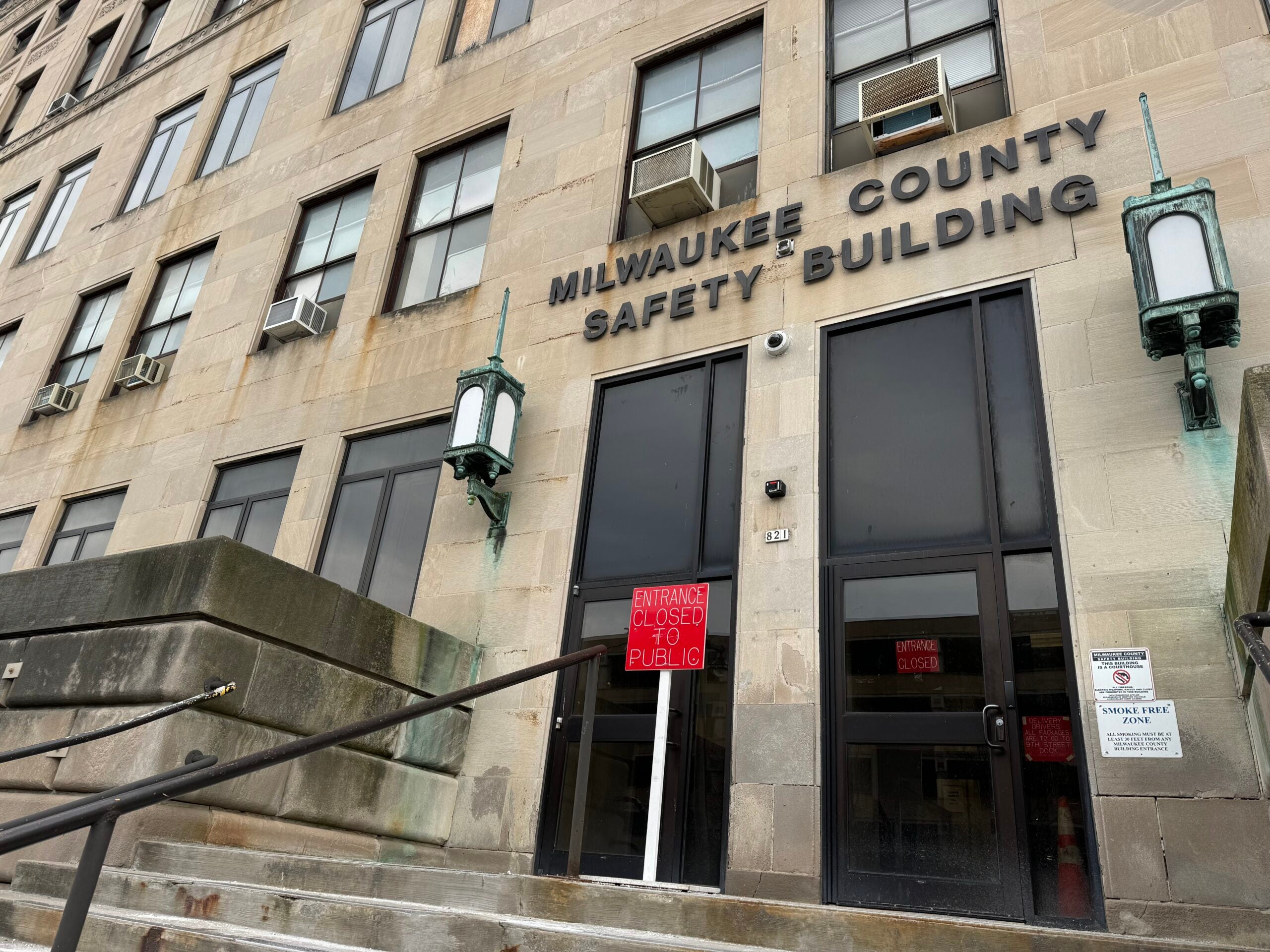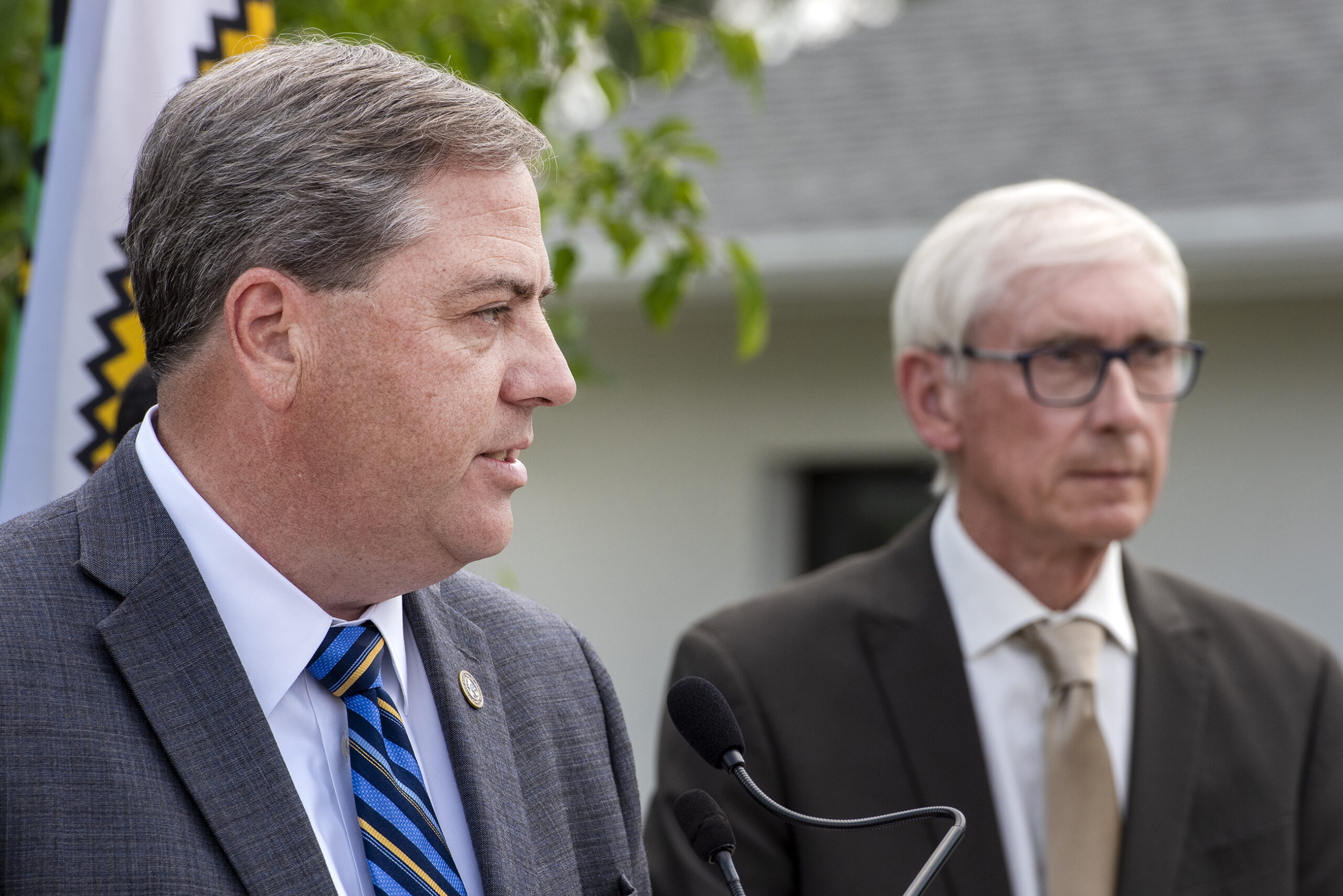Milwaukee County residents will pay 0.4 percent more in county sales taxes after the Milwaukee County Board passed an increase Thursday in hopes of avoiding a looming fiscal cliff.
The tax increase, which was passed by a vote of 15-3, is expected to be signed into law by Milwaukee County Executive David Crowley. It would go into effect on Jan. 1, 2024 and is estimated to generate an additional $82 million in revenue for the county next year. That money would go toward the county’s unfunded pension liability.
The move comes weeks after the Milwaukee City Council took a similar step, raising its sales tax by 2 percent. Milwaukee’s political and civic leaders have been requesting the Legislature’s approval for a new sales tax for years. The county and city were allowed to raise the sales tax through a bipartisan plan to overhaul local government funding passed in the state Legislature this year and signed into law by Gov. Tony Evers.
Stay informed on the latest news
Sign up for WPR’s email newsletter.
Before Thursday’s vote, Milwaukee County Board Chair Marcelia Nicholson called the county’s financial situation “bleak.”
“The step we must now take is clear,” Nicholson said. “We can either go into financial crisis and deny ourselves local dollars that provide critical services our constituents rely on, or we can take advantage of a once-in-a-generation opportunity to invest in our communities.”

Milwaukee County Supervisor Caroline Gómez-Tom said she was worried about the possibility of being forced to make more cuts to county services or programs, as the county has already made cuts in recent years to address budget woes.
“If the sales tax doesn’t pass, we are left with the impossible task of cutting departments, programs, that have already gone through 10 years of agonizing cuts, and more,” said Gómez-Tom.
Gómez-Tom said she was most worried about cuts to the transit system, mental health programs, housing programs and programs for seniors.
“These are the programs that directly impact and support many of our neighbors, and are enjoyed by most of our community,” she said.
In a statement, Crowley thanked the board for approving the increase.
“Today, the County Board of Supervisors shaped the future of the Milwaukee County for years to come by avoiding a devastating fiscal cliff that posed to threaten irreparable harm to our community. After years of advocacy, Milwaukee County finally has the additional revenue needed to avert financial disaster,” Crowley said.
“Milwaukee County is now on a path to preserve critical services, invest in improving quality of life for all county residents, and accomplishing our vision of a healthier, safer Milwaukee County for all,” the statement added.
Milwaukee County is facing an estimated structural deficit of $18.3 million next year. The new sales tax would eliminate that gap, but even with the increase, the county is still expected to see a $13 million budget deficit in 2026. That deficit would rise to $65.8 million without the new sales tax, according to a county report.
Before the vote, Milwaukee County Supervisor Peter Burgelis said he understands there are future problems facing the county budget.
“I think the services that Milwaukee County provides are critical for the health and wellbeing of our residents,” Burgelis said. “A yes vote won’t solve all of our challenges, but it gives our leadership a fighting chance to continue.”
The Milwaukee County sales tax will now go up from 0.5 percent to 0.9 percent. Without the money generated from the tax, local officials have said cuts in non-mandated state services would be needed, largely affecting the Milwaukee County Transit System. That could lead to nearly half of the bus routes being eliminated, affecting thousands of riders across the county.
Through the shared revenue law, the county is required to have all new employees who start in 2025 to join the Wisconsin Retirement System, essentially phasing out the county’s standalone pension system. That system is expected to have a $760 million unfunded pension liability, according to a report from the Milwaukee County Comptroller.
The state shared revenue law said 12 of the 18 supervisors needed to approve the hike. Milwaukee County Supervisors Ryan Clancy, Steve Taylor and Sequanna Taylor voted against the increase.
While speaking during the County Board meeting, Clancy said he was worried about the impact the sales tax would have on low-income residents and families of the county.
“Everybody in this room, I believe, values parks. Vverybody in this room values senior centers. We value all of these things that we’re talking about, but we also need to be valuing not taking money out of the pockets of folks who need it the most, when they need it the most,” Clancy said. “That’s ultimately what it comes down to for me and why I remain a no.”

The County Board overwhelmingly passed an amendment from Nicholson to call on Crowley to reduce the overall property tax levy in the 2024 budget. It also called on the budget to increase funding for county services such as parks and the transit system.
“Our property owners need relief, so this will allow that,” Nicholson said.
The tax will end when Milwaukee County has paid off its unfunded pension liabilities. The county will also get an additional $7.6 million next year through the shared revenue law.
A recent report from the Wisconsin Policy Forum found the Milwaukee County Transit System could see a budget deficit of nearly $26 million in 2025 and a deficit of more than $40 million by 2028. That’s largely due to ridership declines, fiscal constraints and the end of federal COVID-19 pandemic relief aid. Milwaukee County Transit has received nearly $191 million in American Rescue Plan Act funds since 2020. But those funds will run out at the end of 2024, creating a “sizable hole” in the bus system’s budget.
Wisconsin Public Radio, © Copyright 2025, Board of Regents of the University of Wisconsin System and Wisconsin Educational Communications Board.







